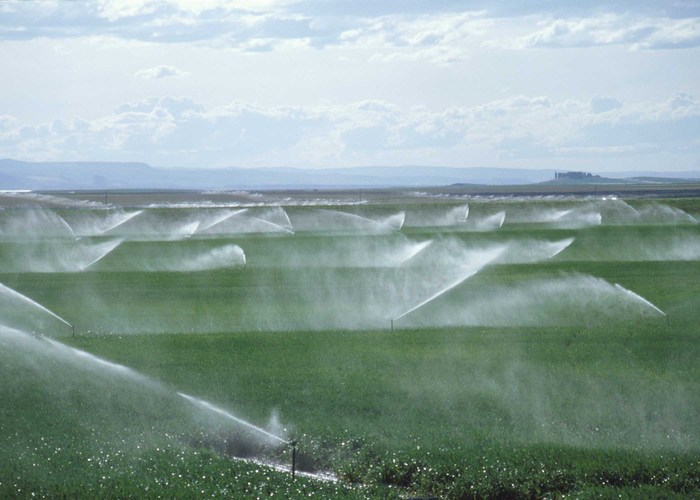Water problem isn't due to SoCal - it's Ag

Water problem isn't due to SoCal - it's Ag
August 21, 2015
Sacramento Bee
By Christopher Thornberg
Special to The Bee
It looks like El Niño will be delivering a wet winter to California – but that doesn’t mean the state should revert to its old habits. We know California will experience another drought in the future, one that may be worse than the current spell.
Some things have changed. There was the passage of groundwater regulations and a long-stalled water bond. Also, the State Water Resources Control Board recently proposed a $1.5 million fine for the illegal diversion of water by an irrigation district – amazingly for the first time.
But California won’t truly tackle its water crisis until it focuses on those whose feckless behavior is largely to blame for the shortage the state is experiencing – the agricultural industry itself.
Most of us have heard the statistic that the agricultural industry makes up just 2 percent of California’s economy but uses 80 percent of its consumable water. This seems galling in light of Gov. Jerry Brown’s recent foisting of dramatic water usage cutbacks on urban areas. His logic – the agricultural community had suffered enough.
And there’s the rub. While some individual farmers have been hurt financially by the current water situation, overall, the agricultural industry has most certainly not:
▪ Farm employment in California has been running at 400,000 employees for the last two years – the highest since 2000.
▪ Real agricultural output in California has fallen modestly over the last three years but is still higher today than at any point prior to 2006.
▪ Over the last three years, farm earnings have been 35 percent higher than they were from 2004 to 2010.
▪ California farmers claimed a mere $250 million in drought damages (insurance) in 2014. This is an industry that grossed over $46 billion in sales in 2013, the latest figures available.
▪ Despite the drought, California’s agricultural producers still managed to grow 1 million acres of hay last year – a very low-value/high-water-usage crop.
Why is the agriculture industry so resilient through dry periods? Because it really doesn’t need all the water it uses when there is no ostensible shortage. Farmers have almost no incentive to manage water usage in normal years due to the incredibly cheap price they pay for this scarce resource – and the fact that water rights holders have limited ability to sell water to others.
Farmers continue to use inefficient irrigation systems and grow water-intensive crops in the desert. When water availability does decline, there are simple – if annoying and with some cost – changes that can be implemented to make up the difference. Otherwise, no conservation efforts are made.
The agriculture community has shown that it can operate just fine with significantly less water than is typically used.
When the rains return, California should force the industry to continue operating under its current usage rates – and push it to reduce further. The extra water should be siphoned off to help areas that have been hit hard by the drought, recharge reservoirs, refill groundwater basins and restore natural habitat.
The beauty of this plan is that it will increase not only the state’s capacity to deal with the next drought but the agricultural sector’s ability to do the same by increasing storage.
A hint of such a plan will cause howls of protest from agricultural water districts that hold the vaunted senior water rights based on claims made before 1914. We have to respect property rights but also acknowledge that these rights can be taken away with just compensation through eminent domain when warranted by the greater good.
Changing the broken way water is allocated in California is an enormous public policy priority – one that is being stymied primarily by a bizarre rights system inherited from medieval England. Yes, this is a situation that warrants legal action.
The benefits of an efficient water allocation system to the California economy, to the agricultural industry and to the environment would create value far beyond the cost of compensation for rights holders. We now need a political system with the courage to do the right thing.
Christopher Thornberg is an economist and founding partner of Beacon Economics LLC.

Website Hosting and Design provided by TECK.net